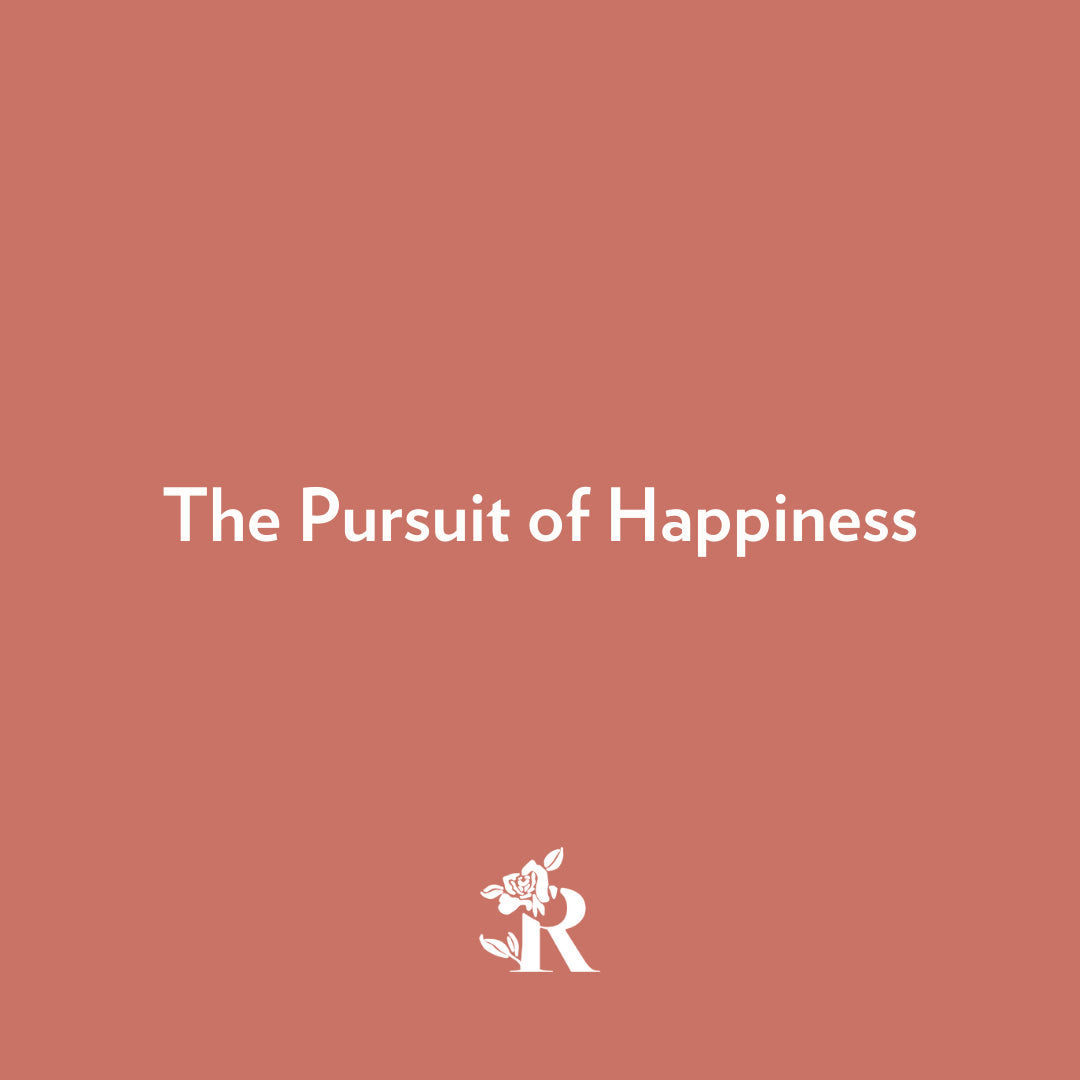The Pursuit of Happiness
Independence Day, 2019
When you ask most people “What makes us happy?”, the answer is personal: “Good food, good friends, health, nature, meaningful work, a connection to source, music. The freedom to do our own freaky things on our own time.”
But what does this mean in the context of the American experiment? Why is the phrase “Pursuit of Happiness’ in our Declaration of Independence? How does it impact how we govern and organize ourselves? What did it mean when it was written, and what does it mean now?
Jefferson’s original draft went like this:
”We hold these truths to be sacred & undeniable; that all men are created equal & independent, that from that equal creation they derive rights inherent & inalienable, among which are the preservation of life, & liberty, & the pursuit of happiness."
The final version came out a bit differently (after a group edit that took five days—I’m sure that was fun!):
“We hold these truths to be self-evident, that all men are created equal, that they are endowed by their Creator with certain unalienable Rights, that among these are Life, Liberty and the pursuit of Happiness.”
To some people, that phrase just means “the government gets out of the way of individual freedom.” To others it implies structuring a national culture that bequeaths each citizen the time for enjoying life—not merely surviving it.
Jefferson was a self-proclaimed Epicurean. Epicureans believe that happiness means "prosperity, thriving, wellbeing”—which in the context of government requires self-rule, self-sufficiency, and individual freedom. If you agree with that, you don’t make laws that infringe on a person’s bodily autonomy. And you might design an economic system that allows an average person to make it without taking on massive debt, etc.
But what if the Founding Fathers’ famous phrase wasn’t an Epicurean idea at all? Revolutionary scholar Adam Ferguson argues convincingly that the meaning of that phrase, when it was written, spoke to the creation of a state driven by magnanimity and good will. “The source of Happiness,” Ferguson states, "is in sharing one’s own happiness.” We are happiest when we are serving others, when we are making a difference, when we are sharing from and contributing to a nation state derived from our own well being.
To paraphrase Ferguson: Kindness infers a happiness in the person who gives the kindness; we are happy when we lend our fortitude and generosity and happy character to others. It’s the same for mankind and governments: We’re not obliged to give others gifts while suffering ourselves, but to dwell in happiness, and from that state of felicity we promote it in the world.”
Thus, promoting the well-being of our fellow humans is not just essential to the “pursuit of our own happiness.” It is also a guideline for how to act. It’s difficult to be happy in a world where others are suffering injustice. To do so, we have to isolate and numb ourselves. No government, agency, or person in power should cause suffering when they could be kind instead.
May we stay human and sensitive to each others’ needs, especially now. May we find in ourselves a reservoir of happiness and connection that we can then amplify and share with the world.
Happy Independence—and Happy Interdependence.
May you be Happy and Free.
Love,
Christine



























